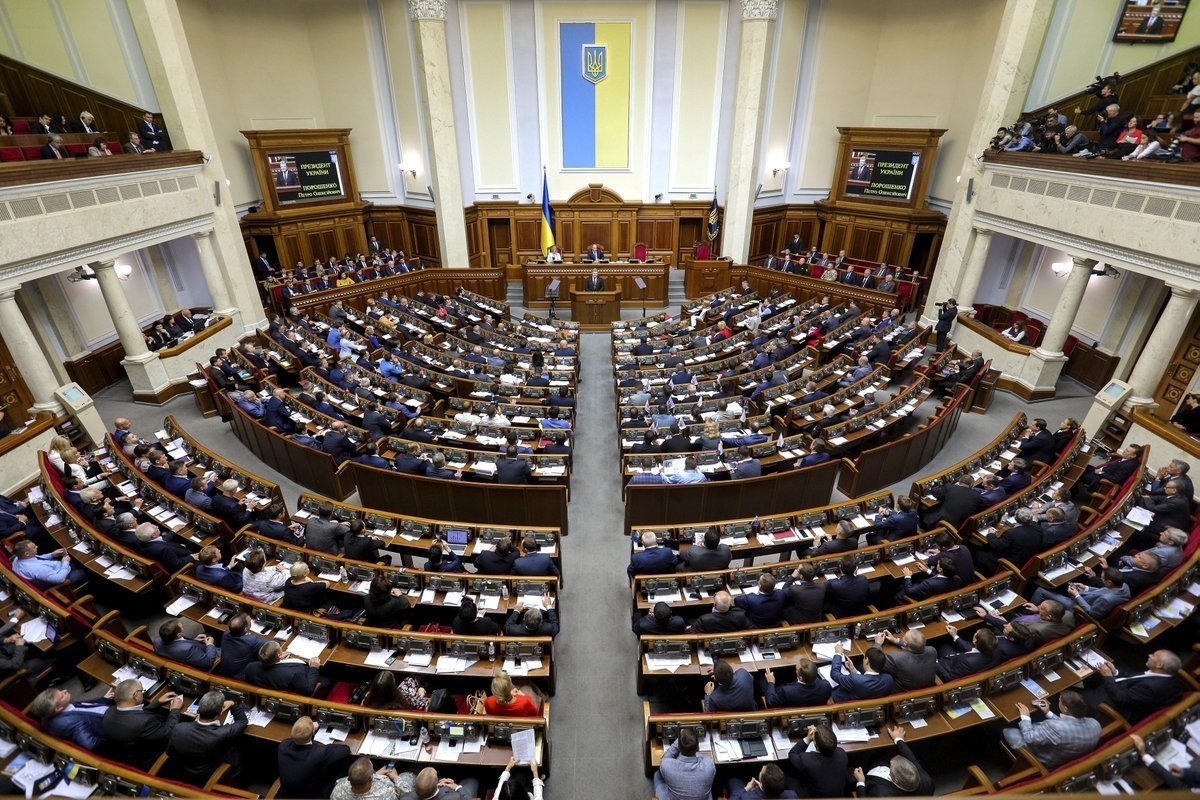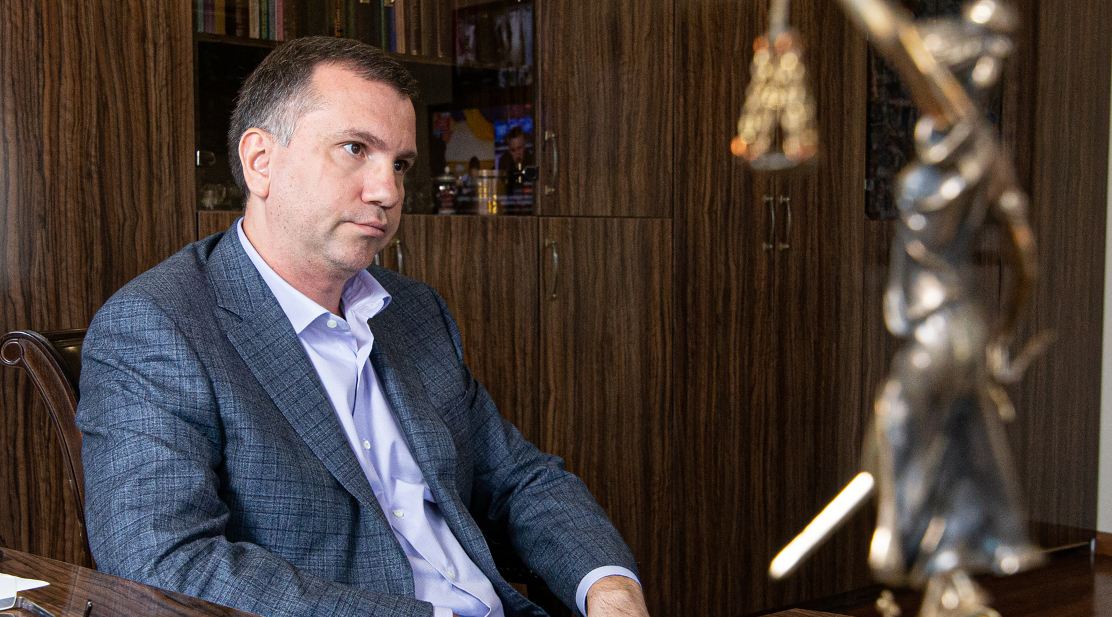There is one cornerstone for improving all areas of life in Ukraine: justice. Under Ukraine's current realities, it often turns into injustice in the country's courts. On 16 October, the cumbersome judicial machine was relaunched again with a corresponding bill passing the second reading in Parliament. This is the second judicial reform for Ukraine to face after the 2014 Revolution of Dignity, and so far, it looks more promising than the first - but not without drawbacks.
The first reform, promoted by civil society and implemented by President Petro Poroshenko and his government, was a failure. However, civil society managed to defend a few points which became an exception to the major setback.
The failures were the result of the wishes of the judicial corps and Poroshenko to avoid any changes - chiefly, by providing no conditions for judges to become politically independent.
President Volodymyr Zelenskyy’s judicial reform will also depend on its implementation. The law itself contains provisions giving a huge chance for a reset. As well, there are loopholes capable of frustrating any potential progress.
The bill passed its first reading on 12 September. At that point in time, the draft law was both welcomed and criticized by reform-advocating NGOs. So far, the greatest issue for Ukraine’s judicial system were the processes of how the bodies of judicial self-governance are formed and composed, particularly, the High Qualification Commission of Judges (HQCJ) and the High Council of Justice (HCJ). To a large extent, it is up to these two judiciary watchdogs to remove from office all politically-motivated and/or dishonest judges and to reform the courts.
The first-reading bill envisaged changing the way the HQCJ was formed but did almost nothing to the HCJ’s composition process. Meanwhile, NGOs dealing with judiciary reforms outlined that making no crucial changes to the HCJ could also make the HQCJ changes impossible in the end. The future of much-needed changes to both bodies was unclear until the second reading.
Congress of Judges of Ukraine is the highest body of judicial self-government in Ukraine. It is convoked once every two years (or urgently when needed) by the Council of Judges, a collegial body, ruling judicial self-government in the period between congresses of judges. The delegates of the Congress are judges from various courts, and the Congress forms the Council out of judges too.
Currently, half of the members in both institutions get elected by the Congress of Judges. It means that at least half of both the HQCJ and the HCJ is composed of incumbent or former judges. The vicious cycle cannot be broken as the judges elected by judges preserved the status quo while the old-timer judges kept their positions and judicial corruption prospered.
Law #1008 brought significant changes, yet leaving some space for possible manipulations.
What changes for the HQCJ and the HCJ
According to the law, for the first time ever, the HQCJ members will be chosen on a competitive basis. The crucial role in the process will be given to international experts, which is a sign of positive changes. Earlier, such experts were involved in forming a new institution, the High Anti-Corruption Court (HACC) that deals with top-corruption cases, and the process was welcomed by both Ukraine’s civil society and the country’s international partners. The respected international experts helped appoint judges with a clean reputation to the HACC.
Read also: Highly anticipated Anti-Corruption Court prepares for launch in three months
According to the new legislation, the Commission on Integrity and Ethics will consist of six members, with three HCJ members and three international experts. The Commission is going to check the integrity of the judges in the HCJ and the Supreme Court and dismiss them if they don’t meet the criteria.
The law risked being amended in the second reading in a way to exclude the international experts from the ethics commission. However, a number of MPs defended the new norm.
The law also strips the HQCJ’s incumbent composition of their powers. Roman Kuibida, deputy Chairman of the Board of the Center for Political and Legal Reforms evaluates it as a positive step because earlier most dishonest judges remained in office.
“The new HQCJ would be able to achieve better results, at least for almost a half of the judicial corps,” the expert says.
Still, experts see drawbacks in the legislature as well. The incumbent HQCJ would not be able to finalize the ongoing competitions and this would cause a staff shortage in the first instance courts and courts of appeal for a long period of time.
Another risky provision envisages that candidates for the HQCJ should have 15 years of work experience in the legal sector. This means that the “old guard” from the unreformed system will be present in the new composition of the institution.
Mykhailo Zhernakov, Head of the DEJURE Foundation, welcomed the adoption of the law which he considers as the first step to relaunch the stalled judicial reform, and praised the involvement of international experts in the process.
“At the same time, too many responsibilities are given to the old unreformed HCJ by the law. This hotbed of judicial corruption should also be relaunched as soon as possible. At that, the key role here should also be given to independent international experts.”
Previously, the DEJURE Foundation in collaboration with the Automaidan and the Anti-Corruption Action Center NGOs compiled a list of key failures of the HCJ. Among them was the permission for at least 44 judges to hold posts in the new Supreme Court, retaining the judges who prosecuted Euromaidan activists, pressuring independent judges, legalizing false information in the declarations on integrity and family connections, and others.
Three organizations are supposed to re-introduce the composition of the HCJ in a way that at least half of its members would be representatives of the civil society sector such as human rights activists, journalists, and representatives of corresponding NGOs trusted in society.
Another ambivalent provision envisages that the decisions of the ethics commission can be appealed in the Kyiv District Administrative Court (KDAC). The court is, in fact, a symbol of judicial corruption. There is no other Ukrainian court having a more unsavory reputation than the KDAC.
In December 2017, then-president Poroshenko made a number of decisions on the liquidation of courts. The HCJ agreed upon the liquidation of the Kyiv District Administrative Court. However, sometime later the KDAC disappeared from the list and continued operating. Among the court’s dubious decisions were legitimizing the dispersal of the Euromaidan protesters, blocking investigations on high-profile corruption, canceling the competition for the position of the head of customs, stalling the reform of its own activities.
That is why the doubts of society regarding the ability of this court to support the reform are justified.
Read also: Recent outrageous decisions of Ukrainian courts prove Zelenskyy inherits limping judicial system
Other provisions
The new judicial reform reduces the number of Supreme Court judges approximately by half. Kuibida points out that the procedure for that is not regulated and mechanisms to reduce the load on the judges are not foreseen,
“People whose cases are considered by the Supreme Court (about 70,000) will suffer from it the most,” Roman Kuibida says.
A questionable provision of the new law reduces salaries for HCJ, HQCJ, and Supreme Court members. The previous reform foresaw a gradual salary increase for judges who successfully pass the qualification assessment. The highest earnings were foreseen by the Supreme Court judges. Now, reducing the HQCJ and HCJ salaries may prevent qualified specialists from going to work in the system.
236 MPs voted for the reform. President Zelenskyy’s Servant of the People faction gave 219 votes, 17 more votes were from non-affiliated deputies.
The pro-Russian Opposition Platform for Life, Poroshenko’s European Solidarity, Yuliya Tymoshenko’s Batkivshchyna, Voice of the rockstar Sviatoslav Vakarchuk, and the group For the Future did not give a single voice for Zelenskyy’s judiciary reform.
Read more:
- Recent outrageous decisions of Ukrainian courts prove Zelenskyy inherits limping judicial system
- Here is how Ukraine can finally prosecute top-corrupt officials
- Judicial reform in Ukraine. What to expect from it| #UAreforms
- Activists call on Poroshenko to “veto” Supreme Court judges with tainted reputations
- Society guarding fairness of Ukraine’s Supreme Court: 78 new judges to be selected next months
- Highly anticipated Anti-Corruption Court prepares for launch in three months
- Five years after Euromaidan, 227 judges who persecuted activists keep their seats
- Overloaded Ukrainian courts obstructing justice in top corruption cases





